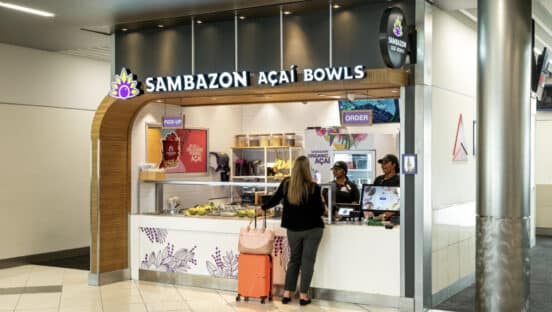As quick-serve operations are figuring out how to comply with menu-labeling requirements and consumer demand for healthier menu items, many corporate executives are tackling another health-related issue: the health of their employees. Studies show that healthy employees are more productive employees, something that could benefit quick-serve executives and consumers.
Addressing employee health has become such a hot topic that two organizations—the National Association for Health and Fitness and ACTIVE Life—have come together to create Employee Health & Fitness Month, which takes place annually during the month of May. Its goal is to promote the benefits of a healthy lifestyle to employers and their employees through worksite health-promotion activities and environments.
“Employee wellness programs relate on a purely human level to an extremely complex problem,” says Diane H. Hart, president of the National Association for Health and Fitness.
“Current and future spending in employee health is not only unsustainable, but also diminishes the overall competitiveness of American businesses within the global marketplace. Employee health efforts on primary prevention and risk avoidance keep the majority of the work force low-risk and healthy.”
At Lakewood, Colorado–based Einstein Noah Restaurant Group (enrgi), which is comprised of three brands—Einstein Bros. Bagels, Manhattan Bagel, and Noah’s Bagels—corporate and corporate-store employees can take part in “ENRGI & You.” CEO Jeff O’Neill says this program, which launched in May, is designed to address a broad spectrum of wellness, like positive thoughts, healthy eating, fitness, mental well-being, alternative medicine, a balanced lifestyle, and recreation. The program also helps educate employees about ENRGI’s medical plan.
The reasoning behind the program is two-fold: “The benefits department created a wellness program for our employees that will keep our employees healthy and happy, with the added benefit of lowering our health-care claims and expenses for the medical and prescription plans,” O’Neill says.
At Boston-based burrito chain Boloco, employees are encouraged to take part in healthy initiatives, although there is no formal program in place. For instance, Boloco encourages its staff to participate in cycling races as part of team-building exercises, offers gym memberships to its employees, and reimburses for workshops on a lifestyle approach that encourages balance of body and mind. Through 2011, the program has been available to 40 employees; in 2012 it will be available to all employees working more than 32 hours.
Even though it has been difficult to get Boloco’s health initiatives up and running, company CEO John Pepper says it’s worth it, because “it’s all connected.”
“People who feel better about themselves will do better at work, relate to those around them better, and have an all-around better experience,” he says.
Given that health is a personal matter with each individual, quick-serve CEOs are left to figure out just how involved they can get when it comes to their employees’ health. Hart says CEOs and their companies are in an ideal position to promote employee health.
“With closer ties to employees, business and industry can encourage positive health behavior change in a supportive context of workplace policies and culture,” she says. “Business and industry can also have an opportunity to reach families and the broader community by leveraging community resources and using health benefit incentives.”
However, before setting up and implementing a health program, O’Neill says there are three questions a CEO should consider.
“The first question is: What should I be doing to show that I am personally committed to a healthy active lifestyle … leading by example,” he says. “How do our benefits support the employees’ desire to lead a healthy life? What more can we afford to do to support our employees’ desire to lead a healthy life?”
O’Neill says employee feedback on the ENRGI program has been positive. “There is a sense of community within the office, and our employees are feeding off of one another in their efforts to sustain a healthy lifestyle,” he says. Of course, fast food employees tend to eat the food offered by their employers, leaving executives with another debate: whether or not they should encourage consumption of the concept’s healthier menu items.
At Boloco, it comes down to the employee’s individual choice. “There are so many choices, so you can be as healthy or as indulgent as you want,” Pepper says. With a variety of portion sizes available, he points out that employees can choose a Boloco item that works within a healthy lifestyle.
O’Neill says many menu selections at his bagel concepts provide healthy options. “The innovative menu items that we create and sell reinforce the healthy standards we promote for our customers and our employees,” he says. “Healthier choices have become permanent in our restaurants and feature a number of fresh, balanced options for consumers.”
The tangible benefits of having healthy employees, O’Neill says, are plentiful for both employee and employer. “Happier, healthier, and more productive employees plus lower benefit costs, it just makes sense all around,” he says.







